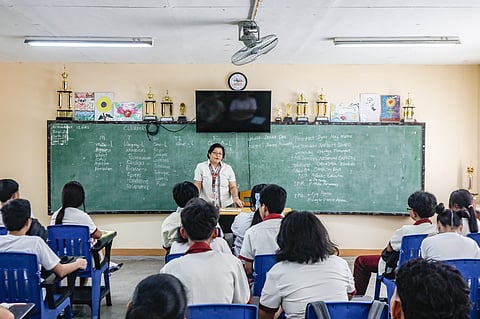
- NEWS
- the EDIT
- COMMENTARY
- BUSINESS
- LIFE
- SHOW
- ACTION
- GLOBAL GOALS
- SNAPS
- DYARYO TIRADA
- MORE

The Palace on Wednesday clarified that President Ferdinand Marcos Jr. is not against the K to 12 program; however, since an enabling law is in effect, the President will continue to support and improve the current education scheme through the Department of Education.
“We want to clarify this: He is not saying that he is against K-to-12. What he is saying is that it was not effective because the agencies were not prepared for it. And now, through Secretary Angara, it is being improved,” said Undersecretary Claire Castro during a Palace briefing on Wednesday.
“But according to the President, as long as the law for K-to-12 is there, it will be supported and expanded and improved properly for our students,” she added.
Earlier, the Contact Center Association of the Philippines (CCAP) said fresh graduates of the K to 12 program are unfit for contact center and business process outsourcing jobs, as newly graduated senior high school students are not ready for the meticulous jobs that have been providing billion-dollar revenues to the coffers.
With this, Haidee Enriquez, president of CCAP and CEO of BPO firm MicroSourcing, has called on the Education Department to amend the current Senior High School curriculum to adapt to the ever-changing business landscape, particularly with the emergence of artificial intelligence.
On Tuesday, Senator Sherwin Gatchalian said he will file in the 20th Congress a bill that deals with specialization-focused college education that can be completed in three years.
The Three-Year College Education (3CE) Act seeks to capacitate the Commission on Higher Education to allow flexibility for degree programs to be completed in not more than three academic years.
The duration of programs, however, should still be based on assessed industry needs, international standards or benchmarks, and recognized best practices.
The proposed measure provides that all General Education (GE) courses shall be integrated and completed at the senior high school level.
It also seeks to ensure students' college readiness and provide more time for internships and advanced specialization.
With this, Undersecretary Castro said, “Whatever the law becomes, that will also be followed. But now that the law is there, it will be given value and will be extended and improved.”
